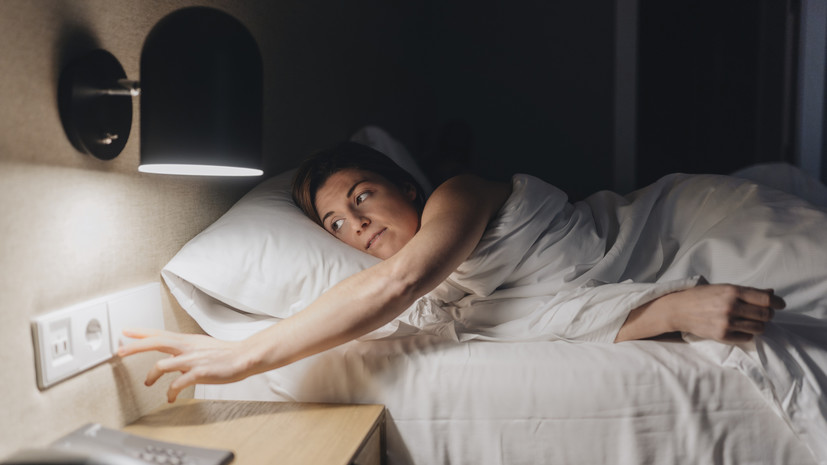She recalled that the body lives according to the biological clock, that is, in accordance with circadian rhythms.
"In the dark, it goes into rest mode, in the light time it goes into activity mode. These cycles are controlled by hormones, and the main one is melatonin, a sleep hormone that is produced in the brain, "Demyanovskaya emphasized.
The biological clock works so that a person wants to sleep at night, the interlocutor of RT added.
"This is because the synthesis of melatonin is highly dependent on illumination: almost 70% of this hormone is produced in the dark," the doctor said.
The expert explained that insomnia occurs if there is a failure in the synthesis of melatonin. At the same time, according to the laboratory, in 72% of people who passed the analysis for melatonin, the level of the sleep hormone is lowered, Demyanovskaya noted.
"Often, melatonin levels decrease due to stress, disruption of the regime of the day and the rules of sleep hygiene. For example, it is important to follow circadian rhythms, that is, rest at night, and stay awake during the day. In this case, it is advisable to go to bed at the same time and sleep every day for 7-8 hours, not to fall asleep on the weekend for the whole week. Even a few sleepless nights can disrupt the work of the biological clock, "the specialist said.
According to her, it is important to sleep in a dark room: melatonin is produced exclusively in the dark. At night, it is advisable to turn off the lights, TV and all gadgets, close the curtains tightly.
"Tea and coffee can also suppress the production of melatonin, so they should be drunk in the morning. A couple of hours before bedtime, it is advisable not to eat heavy and fatty foods, so that the body does not spend energy on digestion instead of a good rest, "the expert advised.
Earlier, somnologist Candidate of Medical Sciences Sofia Cherkasova in an interview with RT spoke about the effect of stress on sleep.

